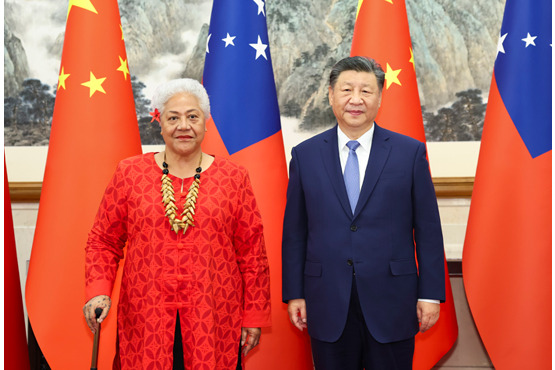Support provided for TCM facility upgrades

A package of measures has been released to support the high-quality development of county-level traditional Chinese medicine hospitals, according to a recent guideline from the National Administration of Traditional Chinese Medicine.
By the end of 2030, all counties except for those with a very small population, should be equipped with a county-level TCM hospital, and their medical capabilities should be parallel with or exceed those of secondary hospitals — the midlevel in China's three-tier hospital system.
China has more than 2,000 county-level TCM hospitals currently, accounting for three-quarters of public TCM hospitals nationwide and handling about 70 percent of visits to TCM health institutions across all counties.
Xing Chao, deputy director of the national TCM body's medical administration department, said that TCM hospitals have become one of the main options for rural residents to seek medical assistance because of their convenience and efficiency.
However, issues such as outdated infrastructure and a lack of comprehensive treatment capabilities and professionals still exist in such hospitals.
The document requires county-level TCM hospitals to nurture an assortment of clinical specialties that can tap into the advantages of TCM and achieve great clinical outcomes, as well as boost their emergency and intensive care capabilities.
"It is also important to improve full life-cycle healthcare services, with a focus on beefing up clinical capacities in the field of geriatrics, pediatrics and rehabilitation," the document said.
"County-level TCM hospitals are also encouraged to partner with smaller TCM clinics across the county to improve the overall healthcare services of the region."
Ban Wenming, president of Taihe County TCM Hospital in Taihe county, Anhui province, said that it has banded together with 13 rural clinics.
Through the partnership, the hospital has rolled out regular training sessions for rural doctors, helped them build TCM facilities and become capable of delivering at least 10 types of TCM remedies locally.
"As the leader of the partnership, we will dispatch professionals to grassroots clinics regularly based on practical demands to ensure that the partnership can generate fruitful outcomes in the long term," he said.
An elderly resident surnamed Li in Sangying township of Taihe county is among an increasing number of beneficiaries of the partnership.
Li was found to exhibit symptoms of high blood pressure, headache and numbness in his limbs on his right side when Zhang Li, a neurologist sent by the county hospital, offered free, door-to-door consultations near the end of April.
Li was immediately sent to the hospital and diagnosed with having a stroke. Thanks to prompt treatment, he has recovered.
According to the TCM hospital in Taihe, it has advanced upgrades in infrastructure and service capabilities for its rural partners, such as equipping them with remote electrocardiogram machines and building first aid stations, and chest pain and stroke facilities.
Yan Chaoxia, head of the Sangying rural clinic, said that in the first half of this year, the number of outpatient visits grew by around 11 percent year-on-year, and the number of hospitalizations increased by some 40 percent from the same period last year.





































